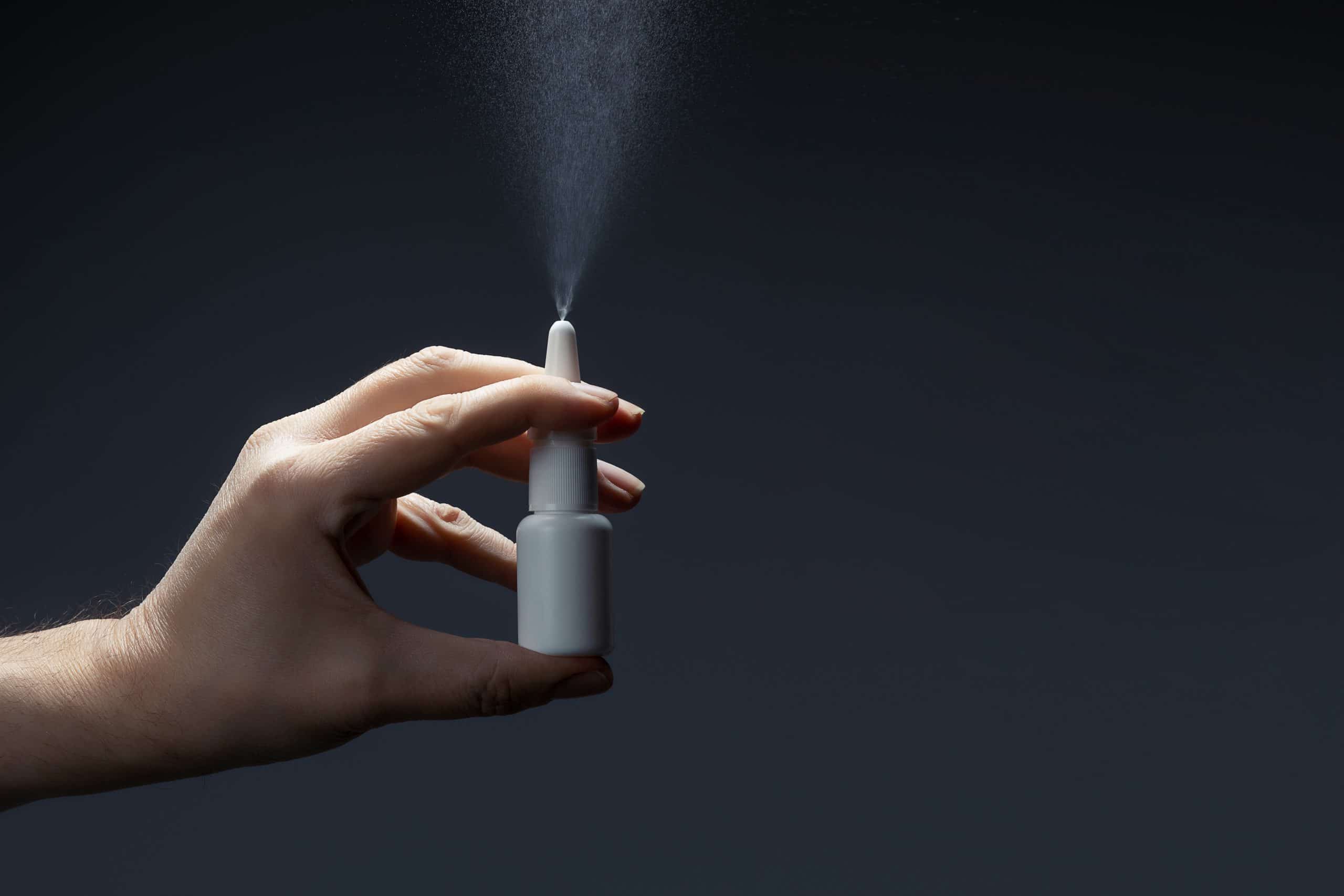RIO DE JANEIRO, BRAZIL – A vaccine in nasal spray form against Covid-19 is being developed by researchers from the University of São Paulo (USP), in partnership with the Federal University of São Paulo (Unifesp) and the Oswaldo Cruz Foundation (Fiocruz).
In the study phase, the new immunization promises to be low cost, protect against variants and block the new virus still in the nose. It is expected to be available by the end of 2022.
“You already start to induce a response in the nasal epithelium and induce the production of an antibody that is very important in mucosal membranes, which are the secretory IgAs [Immunoglobulin A],” explains study coordinator Jorge Elias Kalil Filho, professor at USP’s School of Medicine and Head of the Clinical Immunology and Allergy Laboratory at Hospital das Clínicas.

Besides innovating in inoculation of the virus, with the application through the nose and not intramuscularly, the immunizer also differs in the antigen. “Instead of using the Spike of Wuhan virus, we will use only the RBD [obligatory receptor domain] of the four variants of concern,” says Kalil Filho.
According to Fiocruz, the Spike protein is associated with the pathogen’s capacity to enter human cells. It is one of the main targets of the neutralizing antibodies produced by the organism to block the virus.
IMMUNOGLOBULINS AND B-CELLS
Large proteins called ‘Immunoglobulins’ are a line of defence in which so-called B-cells become activated when an invading virus becomes present. Some B-cells will then transform into plasma cells that produce antibodies matching the specific pathogen. The B-cells are a little like scientists within the body, analyzing the enemy and coming up with a countermove.
The researcher further explains that the antigen will contain pieces of protein that stimulate a longer-lasting cellular response than that mediated by the neutralizing antibodies. “We studied 220 people who had the disease; we also studied by computer the whole genome of the virus and selected fragments that theoretically induce a good cellular response,” he adds.
Therefore, the immunizer must include fragments that can kill the cell if it is infected. “If the virus gets into the cell, the only thing you can do is use the so-called cytotoxic CD8 cells, which kill the infected cell,” Kalil Filho says.
Therefore, the spray must include the cytotoxic CD8+ T lymphocytes, which kill sick cells, and CD4+ T lymphocytes, which assist in antibody production and cytotoxic responses.
Another innovation of the product is creating a type of nanoparticle that adheres to the mucosa of the nose. “The mucosa has many cilia that do not let anything adhere, but we developed a way to put a specific formulation in which we induce an important mucosal response,” adds the doctor.
About the cost, Kalil Filho says it should be around US$5, but further analysis related to yield is still needed. “We have some laboratories that produce recombinant proteins, but it is still very early, so we are dealing with pharmaceutical companies to see if we can find one that can produce a good quantity.”
The nasal spray vaccine can work as a reinforcement for the already existing intramuscularly administered doses. “Probably, when the spray is ready, a large part of the world population will be vaccinated. I believe that it will be mainly as a booster dose,” said the doctor.

